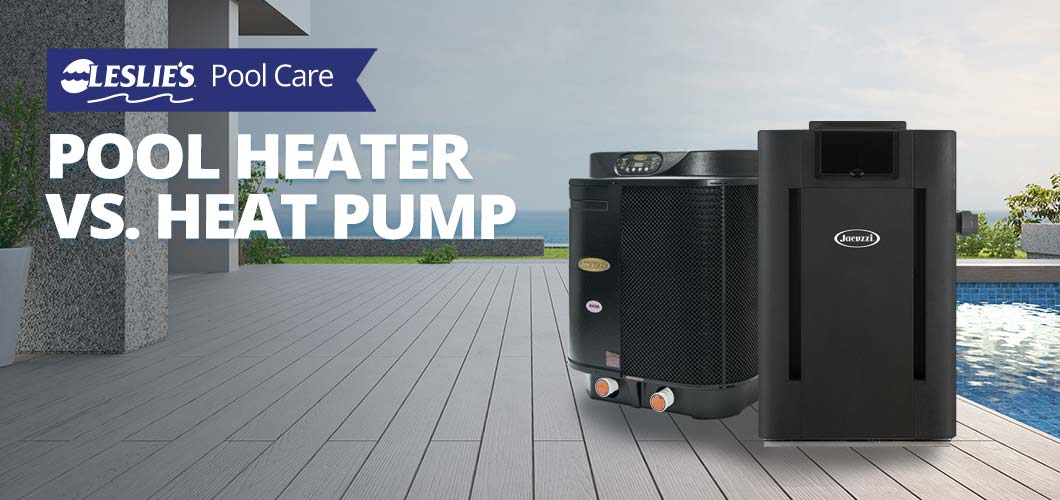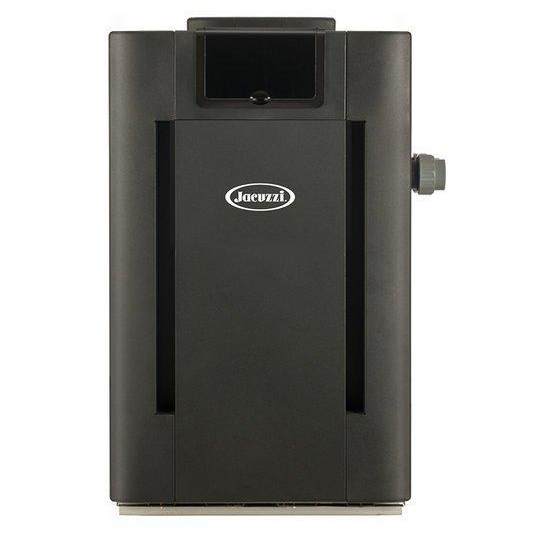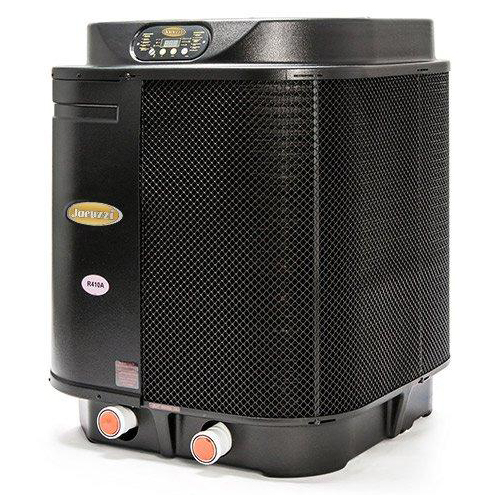
Swimming Pool Heater vs. Heat Pump
If you’re looking to open your swimming pool earlier in the spring and keep it open later in the fall and winter, pool heaters and pool heat pumps are important to your extended swimming plan.
But what is the difference between a swimming pool heater and a pool heat pump? What do pool heaters cost? Which option is more effective for certain ownership situations? To help you make an educated decision before purchase, we’ll help you understand the main features of a pool heater vs. a pool heat pump.
Pool Heaters
Swimming pool heaters are the most popular option for heating pools. Heaters utilize natural gas, propane, or electricity to heat water returning back into your pool. They have a lower upfront cost and raise water temperatures quickly. Although heaters have a lower upfront cost than heat pumps, they require the ongoing expense of propane, natural gas, or electricity. The ongoing operational cost of pool heaters typically exceeds the expense of running a heat pump.
Depending on the type of fuel used (propane or natural gas) and the geographic location of your pool, the cost to heat your pool can range from about $3.00 to $9.00 per hour. Natural gas heaters typically cost a few dollars less per hour vs. propane heaters. Depending on where you live, natural gas can also cost up to 85% less than propane gas. On the flip side, propane might be the most readily available fuel source in your region.
BONUS TIP: Propane and natural gas pool heaters are two of the most common types of heaters, and do a stellar job of keeping your pool toasty. But is one better than the other? Check out this article and see which one is right for you.
An electric pool heater is another great option if propane or natural gas won't work for your pool. Electric heaters are unique in that they're 100% efficient, as compared to propane or gas heaters, which are usually only around 84% efficient. However, these electric units are often smaller and may yield a lower BTU output than their traditional gas or propane counterparts. Because of this, they may not be able to heat the pool as quickly as larger heaters, so they are typically only reserved for smaller indoor and outdoor pools or for spas and hot tubs. Electric heaters are a reliable way to heat any pool, but they will significantly increase your monthly electric bill, especially for larger outdoor units. Electric heaters consume significant electricity, and often require at least a 60 amp circuit breaker with wiring to carry 240 volts. Larger models may require higher amperage circuit breakers and 3-phase power.
PROS:
- Lower upfront cost.
- Heats pool water quickly.
- Works in any temperature.
- Easily installed into a properly sized, plumbed gas line from your home.
CONS:
- Higher utility costs.
- Installation of new gas line may be required, which usually requires a permit.
- New gas meter may be required.
- Heater size may be limited by the size of your existing gas line.
Heat Pumps
Heat pumps are becoming increasingly popular for pool owners. They use the ambient air surrounding the unit to heat your pool. The air passes over an evaporator coil, and the heated refrigerant transfers the heat to the water before returning back into your pool. This process does not require natural gas or propane resources, lowering utility costs. Heat pumps cost about $0.63 an hour to run on electricity; a fraction of the cost of propane or natural gas pool heaters.
Although running costs are low, heat pumps do have a slight disadvantage. Since heat pumps use the surrounding (ambient) air around the unit, they only work well when temperatures are higher than 50 degrees Fahrenheit. When temperatures drop below 50 degrees, heat pumps lose the ability to efficiently heat your pool water.
To learn more about how heat pumps work, be sure to read our detailed article, How Do Pool Heat Pumps Work?
PROS:
- Lower run cost.
- Energy efficient.
- No emissions.
- Easier to install.
- Great for mild climates.
CONS:
- Higher upfront cost.
- Less effective below 50º F.
- Large pools won't heat up as quickly.
- Requires a separate 50–60 amp breaker.
Conclusion
Both heaters and heat pumps are a great solution for pool owners looking for effective ways to heat their pool water. The main deciding factors between a pool heater vs. a heat pump will be your location, budget, and heating needs. If you live in a colder climate and want to enjoy the longest pool season as possible, you should probably lean towards a natural gas, propane, or electric pool heater. However, if you want something that will save you money in the long run, and you live in a climate that does not drop below 50 degrees often, a heat pump may be the way to go.
Shop the best deals on natural gas pool heaters, propane pool heaters, electric pool heaters, and heat pumps from the leading manufacturers like Jacuzzi, Pentair, Hayward, Raypak and more. Still have questions? Our team of pool experts are here to help you find the best heating solution for your swimming pool and lifestyle. Stop by your local Leslie's today to speak with one of our friendly associates.

